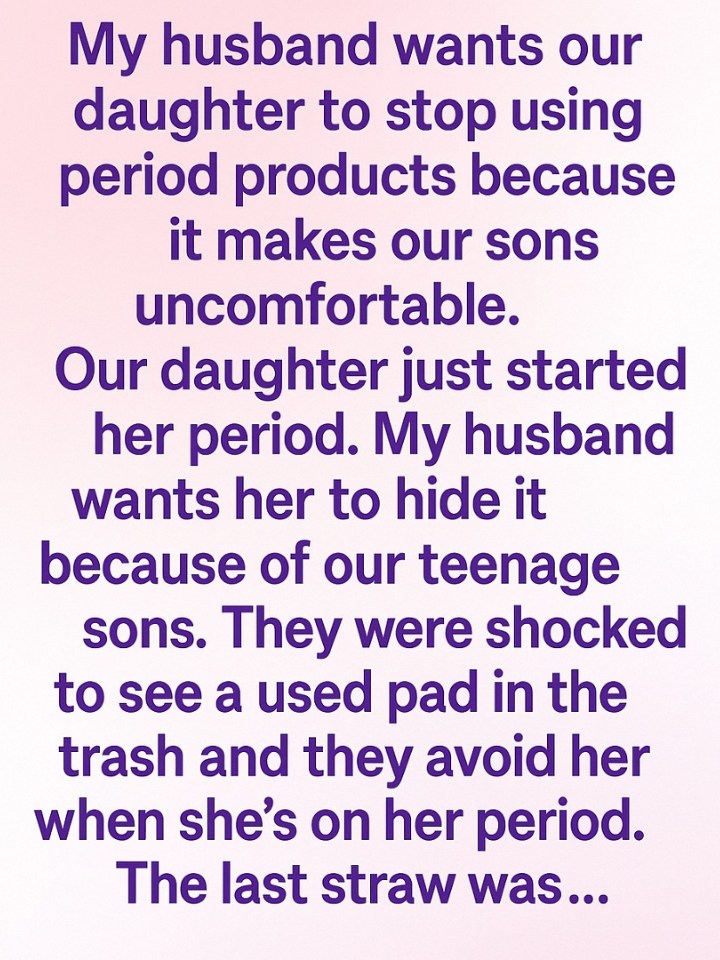When my thirteen-year-old daughter got her first period, she was already overwhelmed—still learning what it meant, still scared of every new sensation in her own body. What she didn’t expect was the reaction inside our own home. My husband, uncomfortable and unsure, told her to hide everything: the pads, the wrappers, even herself. Our teenage sons, after seeing a used pad in the bathroom trash, started avoiding her as if she carried something contagious. The worst moment came when my husband quietly suggested she stay in her room until her period “was over,” so the boys wouldn’t feel awkward. I watched my daughter shrink into herself, her shoulders heavy with shame for something natural and unavoidable. That night, she cried not from pain, but from the terrible belief that she had done something wrong simply by existing as she was.
The next morning, I knew I had to take control before shame rooted itself too deeply. I called everyone into the living room—no excuses, no delays. My sons slouched on the couch, confused, and my husband stood stiffly by the wall, clearly uncomfortable. I explained, carefully and firmly, that periods were not something dirty or dangerous, but a normal part of growing up for many people. I reminded the boys that discomfort is not a threat—it’s a signal to learn, to grow, to step up rather than shrink away. When our daughter walked in, hesitant and afraid, I invited her to sit beside me. I wanted her to see she wasn’t the problem; she was part of the solution we all needed.
What happened next surprised all of us. Slowly, cautiously, the boys began asking questions—real ones, awkward ones, sincere ones. I answered them without embarrassment, guiding them toward empathy with every sentence. They admitted they hadn’t understood what they were seeing, that they didn’t know how to react, and that confusion had turned into avoidance. By the end of our talk, one of them—my rough-around-the-edges sixteen-year-old—asked if there was anything they could do to make their sister more comfortable when she wasn’t feeling well. I saw relief soften her whole body. For the first time in days, she lifted her head, her eyes no longer clouded with shame but with the feeling of being understood.
That night, my husband came to me quietly, guilt settling into his expression. He admitted that he had grown up in a house where periods were never spoken about—where women hid their pain and men pretended not to notice. He apologized to our daughter for making her feel isolated in her own home and promised to do better. That weekend, he came home with her favorite ice cream and handed it to her with a simple sentence that meant everything: “You don’t need to hide anything here. This is your home too.” It wasn’t perfect, but it was a beginning—a shift from silence to understanding, shame to support, and a reminder that families grow stronger not when they avoid hard conversations, but when they face them together.
